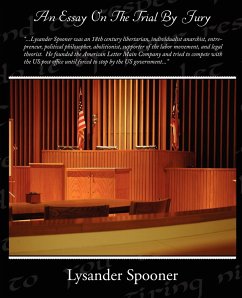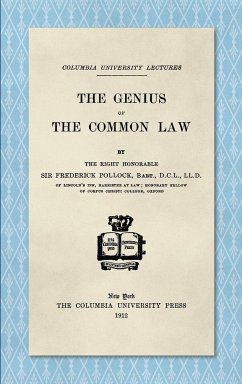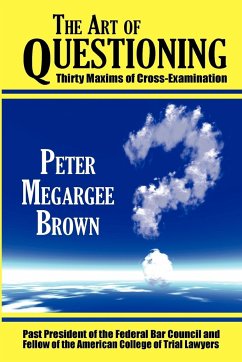Lysander Spooner was an 18th century libertarian, individualist anarchist, entrepreneur, political philosopher, abolitionist, supporter of the labor movement, and legal theorist. He founded the American Letter Main Company and tried to compete with the US post office until forced to stop by the US government. In the Essay on the Trial By Jury Spooner argues for "Jury Nullification," which says that in a free society a jury has the authority to rule on the facts of the case, and can rule on the legitimacy of the law under which the case is tried. This would allow juries to refuse to convict a person if they thought the law was illegitimate.
Bitte wählen Sie Ihr Anliegen aus.
Rechnungen
Retourenschein anfordern
Bestellstatus
Storno








